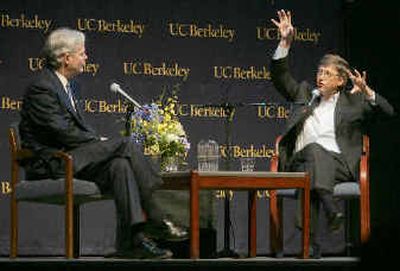Quietly, outsourcing marches on

Despite the recent reluctance of U.S. companies to talk about moving jobs overseas, the practice is accelerating, according to outsourcing-company executives and financial results of the biggest Indian outsourcing firms.
In fact, a number of executives and consultants expect that the pace could pick up even more after the U.S. presidential election on Nov. 2.
“Some customers were waiting for the elections to be over” to place outsourcing orders, says Suresh Senapaty, chief financial officer of Wipro Ltd., a large Indian technology-outsourcing company based in Bangalore. He notes that the outsourcing of jobs has become a political issue in the U.S.
On Friday, Wipro reported revenue jumped 44 percent in the fiscal second quarter ended Sept. 30, driven in part by the addition of 19 new customers from the U.S. Meanwhile, India’s two largest information-technology companies, Tata Consultancy Services Ltd. of Bombay and Infosys Technologies Ltd. of Bangalore, last week reported revenue grew 44 percent and 52 percent, respectively, in the quarter, based on strong growth in U.S. companies outsourcing to India.
Controversy in recent months has made many U.S. companies — and outsourcing firms — reluctant to divulge details about the overseas destinations of jobs awarded to other contractors, for fear of ending up in a campaign speech.
Sen. John Kerry, the Democratic presidential candidate, has made outsourcing of jobs overseas a key issue. And CNN’s Lou Dobbs has emerged as a strong critic of the practice, listing companies on his Web site that move jobs outside America to take advantage of cheaper labor.
But while companies have become quieter about their plans, the pace of outsourcing continues to increase as businesses seek to use lower-cost labor overseas — as indicated by the recent revenue surge at Indian outsourcing firms. While U.S. companies have sent manufacturing jobs outside the country for decades, they increasingly are sending more white-collar and service jobs overseas to take advantage of far lower salaries — from call centers to engineering and other information-technology work. Outsourcing firms with operations in India, Eastern Europe and other parts of Asia are seeing a swift increase in business.
Paul Laudicina, a managing director at Alexandia, Va., management-consulting firm A.T. Kearney Inc., which advises companies on offshore-outsourcing strategies, says the pace is likely to accelerate. “The public debate over offshoring has probably made corporate executives much more careful about how they communicate their consideration of offshoring,” Mr. Laudicina says. However, “I would be very surprised if the election campaign itself and the debates around the offshoring issue are actually having a significant effect on plans to offshore.”
Estimates on the size of the practice vary. But according to Forrester Research Inc. of Cambridge, Mass., a total of as many as 3.5 million U.S. jobs could be sent overseas by 2015, compared with an estimate that about 300,000 jobs had been sent overseas as of the end of 2003.